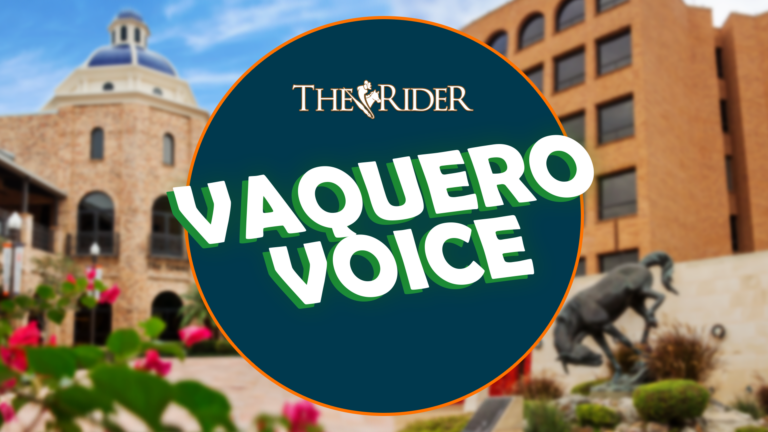
The UTRGV Environmental Studies Program sponsored its fifth annual symposium, Eco Rio, last week with presentations on topics that ranged from local to global issues.
Seven presenters, which included professors in sociology and philosophy, a graduate student and a meteorologist, discussed climate change, eco-friendly lifestyles and habitat restoration.
The symposium was held Nov. 4 on the Edinburg campus and last Tuesday on the Brownsville campus.
Amy Hay, program coordinator for the Environmental Studies Program, said the event is held each year around the same time.
“We’ve been very successful in the range of people we have brought in to speak,” Hay said.
She emphasized the bridge between the university and the community regarding environmental issues.
“I also like the idea that it’s reflective of our community and I think people, especially the students who attend, learn about things they didn’t know,” Hay said. “Like last year, we learned about someone who does organic farming locally and the students were like, ‘Why isn’t this a part of the Engagement Zone?’”

Marta De Angulo, co-founder of Hermana Luna, is an example of what Hay means by bridging the university and the community. Hermana Luna is a nonprofit organization that works to promote holistic health, sustainability and compassion in Rio Grande Valley communities.
De Angulo’s lecture was titled “When Communities Rise: A Grassroots Approach to Ecological Restoration.”
“If we want to have the best solutions for climate change, we need to have a diverse group of people being involved in the process,” she said. “And, so the more we talk about it, the more people feel included or informed about the issues so they’re able to come with different solutions.”
During her presentation, De Angulo emphasized the benefits of having a plant-based diet and how it can prevent and treat many illnesses.
“The Valley specifically deals with a lot of diabetes, high blood pressure, obesity and most of those are actually diseases that are diet based,” she said.
Hay believes the Valley is one of the most beautiful areas in the country, but keeping it that way is a challenge.
“A good one would be the liquefied natural gas,” she said, referring to plans for LNG projects in the Valley. “That’s going to affect people here and it’s a classic case of environmental racism. It’s going through two of the poorest counties in the United States, that if there’s a leak or an explosion, those people are going to suffer from it.”
Hay acknowledges that individual efforts such as recycling, buying a hybrid car and adopting a plant-based diet are important but said everyone should also vote.
“We have to take responsibility and elect politicians and officials that are going to address the problem,” she said.
Patrick Salgado, a civil engineering freshman, was interested in learning more about the environment and said it is important because people do not know much about local environmental issues.
“I’m going to be eco-friendlier and plant a tree or something,” Salgado said, regarding what he will do with the information he obtained from the symposium.
About 100 people attended the Edinburg event and 70 on the Brownsville campus.
“Change of consciousness is one of the most important things we hope happens by attending things like this,” Hay said.







